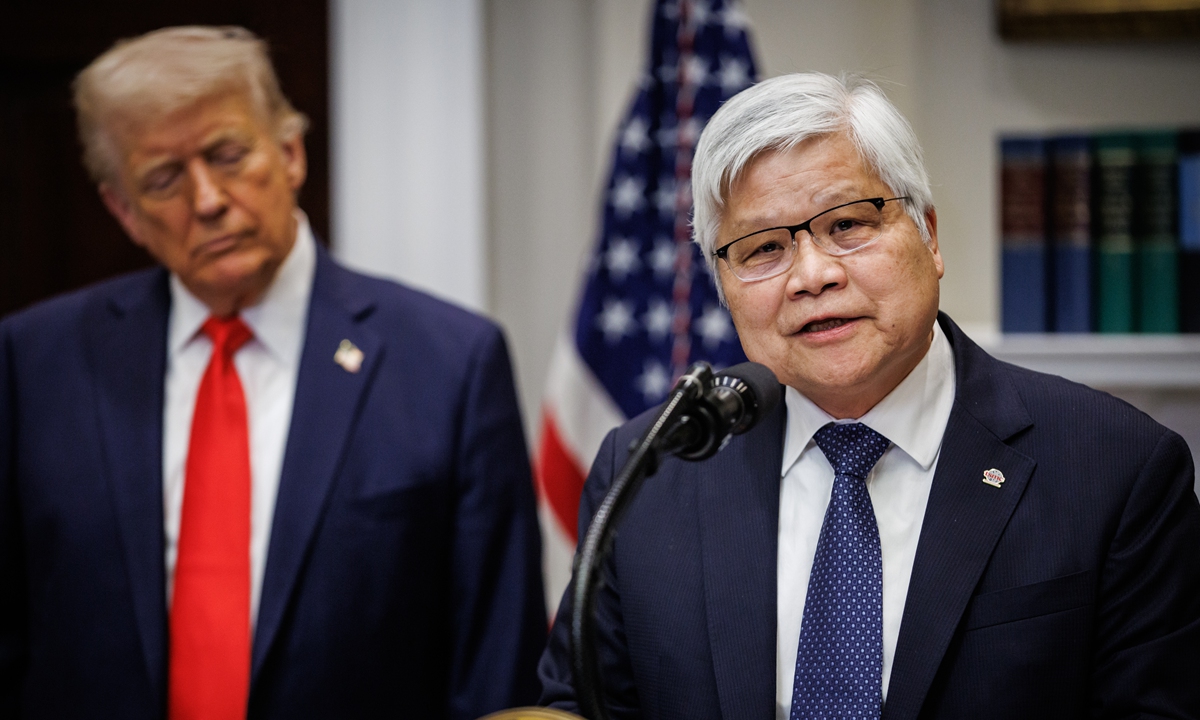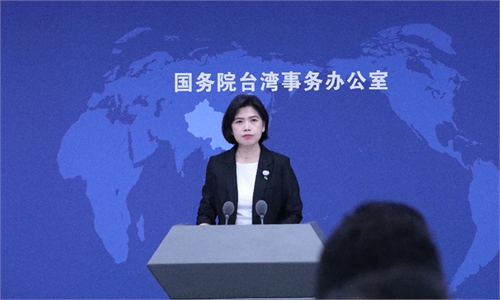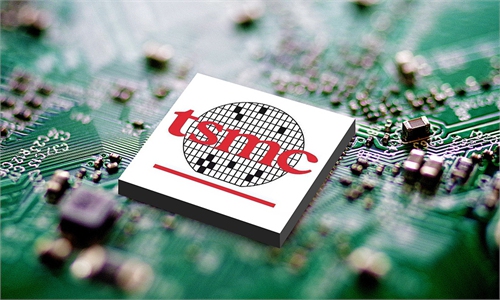TSMC turning into USMC? Taiwan netizens criticize DPP for selling out the island as TSMC announces $100b investment in US

US President Donald Trump (left) and TSMC CEO C.C. Wei at a press conference. Photo:VCG
Taiwan Semiconductor Manufacturing Co (TSMC) plans to make a fresh $100 billion investment in the US including the construction of five additional chip facilities in the country in coming years, its CEO announced with US President Donald Trump on Monday, sparking backlash in the island of Taiwan, with critics claiming TSMC "has become USMC," calling the move "yet another example of the Democratic Progress Party (DPP) selling out Taiwan."
TSMC, the world's largest contract chipmaker and a leading supplier to major US hardware manufacturers, announced the plan during a meeting between CEO C.C. Wei and Trump at the White House, Reuters reported on Tuesday. "We must be able to build the chips and semiconductors that we need right here," Trump said. "It's a matter of national security for us."
The company said the expansion includes plans for three new chip fabrication plants, two advanced packaging facilities and a major R&D center, without specifying a timeline for these projects, per the report.
Building on the company's ongoing $65 billion investment in its advanced semiconductor manufacturing operations in Phoenix, Arizona, TSMC's total investment in the US is expected to reach US$165 billion, according to a company statement released on Tuesday.
The Global Times noticed that as of press time, almost all of the comments under the report by Taiwan media China Times were critical of the move. One said, "The Americans didn't even pay a cent, yet TSMC rushed over. Seems like it's changing its name into 'USMC', and Lai Ching-te is even bowing in gratitude to Trump." Another referred to the move as yet another example of the DPP selling out Taiwan.
According to Reuters, the TSMC shares opened down 2.25 percent on Tuesday after it made the announcement.
As concerns rise over TSMC turning into a US-owned enterprise, Zhu Fenglian, spokesperson for the Taiwan Affairs Office of the State Council, said on February 26 that the DPP authorities, in pursuit of their own interests, have been yielding to external forces, using Taiwan's semiconductor industry and leading enterprises as bargaining chips in their attempt to seek independence by relying on foreign support.
They have even treated the enterprises as "gifts" to hand over, repeatedly selling out the interests and well-being of the people and businesses in the island. "This shameless act of betraying Taiwan while taking pride in ingratiating themselves with the US has faced growing opposition from more and more local residents and businesses," the spokesperson said.
"The Taiwan chipmaker's development trajectory and investment direction suggest it's highly likely that TSMC will be gradually dismantled and absorbed by the US," said Zhu Songling, a professor from the Institute of Taiwan Studies of Beijing Union University.
Zhu Songling noted that the $100 billion investment is largely catering to American interests rather than its own strategic needs. "At the core of this strategy lies America's ambition for technological dominance, trying to gain control over key chip manufacturers and reduce reliance on the Asian supply chain," he told the Global Times on Tuesday.
Zhu Songling said TSMC's decision will accelerate the industrial hollowing-out of the island, greatly impacting its economy. As one of the island's main economic pillars and a crucial part of the global supply chain, Taiwan's semiconductor industry will lose its strategic significance if TSMC's advanced manufacturing is placed under US control.
Losing TSMC will also undermine Taiwan's international strategic value. The US previously provided security assurances based on the island's semiconductor importance, but now American support may significantly decline, Zhu Songling noted, adding that as the trend for national reunification becomes increasingly clear, if the DPP keeps stubbornly refusing to recognize reality, they will face very unfavorable outcomes in the future.



